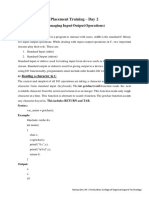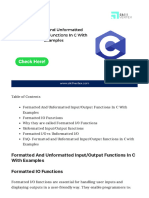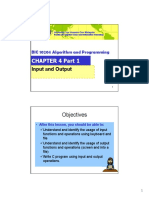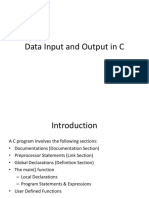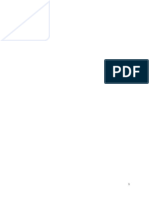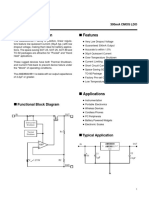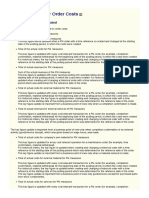0% found this document useful (0 votes)
4 views16 pagesInput Output Functions
The document provides an overview of Input Output (I/O) functions in C programming, detailing standard I/O operations defined in the <stdio.h> header file. It covers both unformatted and formatted I/O functions, including examples of how to use functions like getchar(), putchar(), scanf(), and printf(). Additionally, it discusses character test functions from the <ctype.h> header file and formatting options for output.
Uploaded by
jayanthv040906Copyright
© © All Rights Reserved
We take content rights seriously. If you suspect this is your content, claim it here.
Available Formats
Download as PDF, TXT or read online on Scribd
0% found this document useful (0 votes)
4 views16 pagesInput Output Functions
The document provides an overview of Input Output (I/O) functions in C programming, detailing standard I/O operations defined in the <stdio.h> header file. It covers both unformatted and formatted I/O functions, including examples of how to use functions like getchar(), putchar(), scanf(), and printf(). Additionally, it discusses character test functions from the <ctype.h> header file and formatting options for output.
Uploaded by
jayanthv040906Copyright
© © All Rights Reserved
We take content rights seriously. If you suspect this is your content, claim it here.
Available Formats
Download as PDF, TXT or read online on Scribd
/ 16


